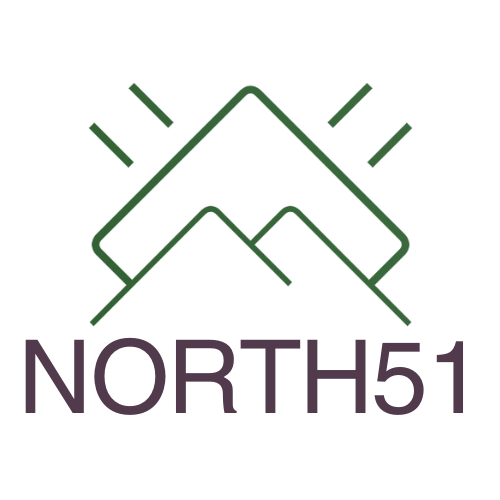
Our speakers have big ideas. They’re the ones who aren’t afraid to push the boundaries of the traditional geospatial industry. If that’s you, we’d love to hear from you.
THE PROGRAM
The 2026 theme, Mapping the Unseen, challenges the boundaries of geographic understanding by exploring how we capture, analyze, and apply data beyond traditional sight. From invisible wavelengths and biological signals to deep ocean mapping and underground utilities, NORTH51 brings together over 100 global leaders in geospatial technology. Attendees will engage in discussions on the transformative power of emerging technologies including AI, IoT, and business process innovation, discovering the unseen patterns that shape our world.
The People Panel
The People Panel at NORTH51 explores the unseen ways geospatial technologies are transforming human behavior and shaping societies worldwide. From advanced aerial detection improving pipeline safety to remote sensing uncovering invisible greenhouse gas emissions, these innovations are influencing how industries operate, communities plan, and individuals interact with their environments. As geospatial data becomes more integrated into decision-making, it is changing how we understand risk, sustainability, and resilience on a global scale. This discussion will highlight the profound yet often unnoticed ways these technologies are reshaping the world and the lives of those within it.
Welcome Party
Kick off the conference in style—connect with fellow attendees over drinks and light bites.
Choose Your Own Adventure
This is your time to make the most of the conference in whatever way suits you best. Whether you want to explore the town, grab dinner with new connections, schedule a meeting, or take a moment to recharge, the choice is yours. No structured sessions—just open time to do what you need.
Breakfast at Leisure
Start your day at your own pace with breakfast and casual conversations with colleagues at the Stirling Lounge. Reservations are recommended.
Opening Remarks
The Co-Chairs will recap day one and set the tone for a full day of sessions.
The Space Panel
The Space Panel at NORTH51 delves into the unseen impact of space-based technologies on life here on Earth. From satellites tracking environmental changes to spaceborne sensors monitoring critical infrastructure, these innovations are transforming how we navigate challenges like climate change, disaster response, and resource management. As space technology becomes more accessible, it is reshaping industries, informing policy, and influencing everyday decisions in ways most people never realize. This discussion will explore how the growing reach of space-based data is quietly but powerfully changing the way we live, work, and interact with our planet.
The GenAI Panel
The GenAI Panel at NORTH51 tackles the rapidly evolving intersection of geospatial data and artificial intelligence, exploring whether GeoAI is merely an adaptation of existing AI models or the emergence of a truly novel foundation. As AI transforms how we analyze and interpret location-based data, the question remains—are we innovating or repurposing? This discussion will challenge assumptions, highlight groundbreaking applications, and examine whether the most impactful GeoAI projects require entirely new models or if existing AI tools are enough to unlock the unseen potential of geospatial intelligence.
Fireside Starter: Open Ocean, Open Data
Open Ocean, Open Data: The Power of Open-Source for Coral Reef Monitoring
Coral reefs are at a tipping point, but what if data could accelerate action before it’s too late? Dr. Emily Darling, Director of Coral Reef Conservation at Wildlife Conservation Society and co-founder of MERMAID, is pioneering a future where critical reef health data flows seamlessly from scientists to communities and governments.
The Fireside Starter ignites the discussion for the following Fireside Chat. During this session Emily will explore how MERMAID - a field-ready, online/offline data platform - is transforming the way we monitor and protect coral reefs worldwide. Join us to dive into the power of data-driven conservation and the urgent need to bridge science and action in a changing ocean.
Hang on to your questions during this session, grab a coffee, and meet us on the terrace for a impactful conversation with an impressive mountain backdrop.
Fireside Chat: Open Ocean, Open Data
Open Ocean, Open Data: The Power of Open-Source for Coral Reef Monitoring
Coral reefs are at a tipping point, but what if data could accelerate action before it’s too late? Dr. Emily Darling, Director of Coral Reef Conservation at Wildlife Conservation Society and co-founder of MERMAID, is pioneering a future where critical reef health data flows seamlessly from scientists to communities and governments.
In this fireside chat at NORTH51, Jonathan Neufeld will moderate a discussion to explore how MERMAID - a field-ready, online/offline data platform - is transforming the way we monitor and protect coral reefs worldwide. Join us to dive into the power of data-driven conservation and the urgent need to bridge science and action in a changing ocean.
The Social Summit
Unwind and enjoy an evening of fun, food, and unforgettable moments with your fellow attendees.
Networking Brunch
Wrap up the week with a laid-back brunch, sharing laughs and ideas before heading out.
Optional Mountain Adventure
Cap off the conference with a refreshing escape to the stunning mountain landscapes—relax, explore, and soak it all in.
Shuttle from Malcolm Hotel
Attendees can book the NORTH51 Shuttle from the Malcolm Hotel to the YYC Airport. Add the shuttle tickets to your order when you register, and plan your flights accordingly.
Registration & Networking
Pick up your badge and take the opportunity to network before the conference begins.
Shuttle from YYC Airport
Attendees can book the NORTH51 Shuttle from the YYC Airport to the Malcolm Hotel. Add the shuttle tickets to your order when you register, and plan your flights accordingly.















